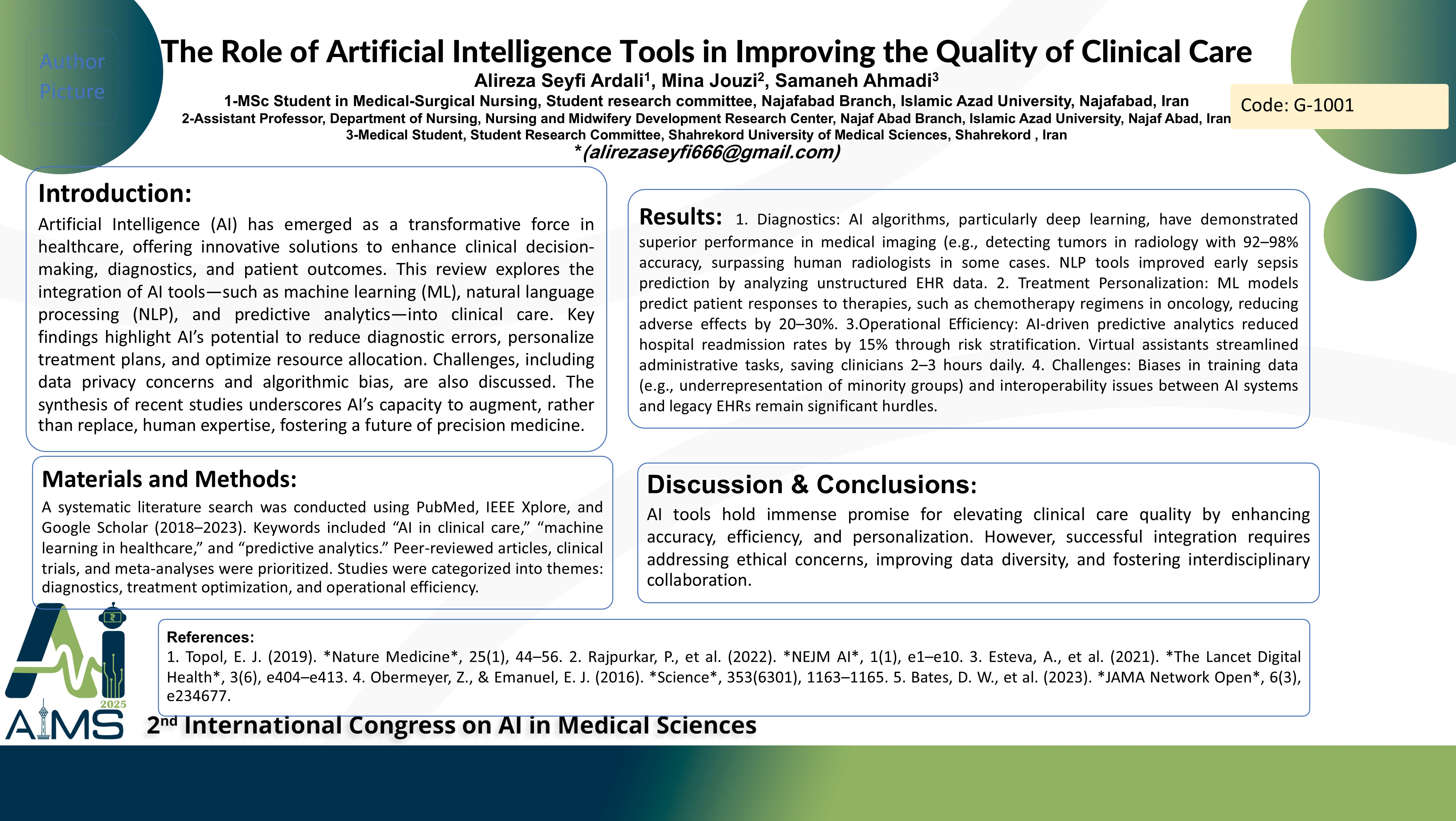The Role of Artificial Intelligence Tools in Improving the Quality of Clinical Care
Code: G-1355
Authors: Alireza Seyfi Ardali *, Mina Jouzi ℗, Samaneh Ahmadi
Schedule: Not Scheduled!
Tag: Clinical Decision Support System
Download: Download Poster
Abstract:
Abstract
Background and Aims: Artificial Intelligence (AI) has emerged as a transformative force in healthcare, offering innovative solutions to enhance clinical decision-making, diagnostics, and patient outcomes. This review explores the integration of AI tools—such as machine learning (ML), natural language processing (NLP), and predictive analytics—into clinical care. Key findings highlight AI’s potential to reduce diagnostic errors, personalize treatment plans, and optimize resource allocation. Challenges, including data privacy concerns and algorithmic bias, are also discussed. The synthesis of recent studies underscores AI’s capacity to augment, rather than replace, human expertise, fostering a future of precision medicine. Background and Aims: The growing complexity of healthcare demands tools that improve efficiency and accuracy. AI’s ability to analyze vast datasets and identify patterns aligns with these needs. This review aims to: evaluate AI’s role in enhancing diagnostic accuracy, treatment personalization, and workflow efficiency; identify barriers to implementation; and propose strategies for ethical and equitable AI adoption in clinical settings. Method: A systematic literature search was conducted using PubMed, IEEE Xplore, and Google Scholar (2018–2023). Keywords included “AI in clinical care,” “machine learning in healthcare,” and “predictive analytics.” Peer-reviewed articles, clinical trials, and meta-analyses were prioritized. Studies were categorized into themes: diagnostics, treatment optimization, and operational efficiency. Results 1. Diagnostics: AI algorithms, particularly deep learning, have demonstrated superior performance in medical imaging (e.g., detecting tumors in radiology with 92–98% accuracy, surpassing human radiologists in some cases. NLP tools improved early sepsis prediction by analyzing unstructured EHR data. 2. Treatment Personalization: ML models predict patient responses to therapies, such as chemotherapy regimens in oncology, reducing adverse effects by 20–30%. 3.Operational Efficiency: AI-driven predictive analytics reduced hospital readmission rates by 15% through risk stratification. Virtual assistants streamlined administrative tasks, saving clinicians 2–3 hours daily. 4. Challenges: Biases in training data (e.g., underrepresentation of minority groups) and interoperability issues between AI systems and legacy EHRs remain significant hurdles. Conclusion: AI tools hold immense promise for elevating clinical care quality by enhancing accuracy, efficiency, and personalization. However, successful integration requires addressing ethical concerns, improving data diversity, and fostering interdisciplinary collaboration.
Keywords
Artificial intelligence, Clinical Care, Personalized Medicine
